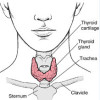
Dr. Kristine Denise Corvera is an Internal Medicine – Endocrinology specialist treating conditions such as Diabetes, Goiter/Thyroid disease, Osteoporosis, lipid, cholesterol, and blood pressure disorders, and other hormone abnormalities.

Dr. Kristine Denise Corvera is an Internal Medicine – Endocrinology specialist treating conditions such as Diabetes, Goiter/Thyroid disease, Osteoporosis, lipid, cholesterol, and blood pressure disorders, and other hormone abnormalities.

Specializes in Diabetes, Obesity, Diseases of the Thyroid/Goiter, Pituitary, Adrenal and Osteoporosis

About Alopecia Areata Alopecia areata is an autoimmune condition where the immune system mistakenly fights the hair follicles from which hairs grow. The consequences of this disease include hair loss on the head and in some cases, in other places on the body such as the pubic region, eyebrows, eyelashes etc. Generally, the hair falls in a few smaller round patches. Although in some people hair loss can be larger, the condition usually does not surpass beyond these bare patches. It is possible for the disease to lead a total loss of hair on the head (alopecia totalis) or complete » » » [Read more]

Are you on the look out for natural remedies for Thyroid Disease that is truly effective? If so, read further to look for simple and instant solution to your natural remedies for thyroid disorders.

Dr. Jeremy F. Robles, MD, FPCP, FPSEM – Philippine Board Certified Internist (PCP) and Endocrinologist (PSEM). He did his residency in Internal Medicine Cebu Velez General Hospital (CVGH) graduating in 2005. Finished his Fellowship in Adult Endocrinology & Metabolism at The University of Santo Tomas Hospital (USTH) in 2009. Pursued further training in medical Neuroendocrinology at the National Institutes of Health (NIH) USA in 2010. His expertise include Diabetes and Metabolism, Goiter & Thyroid Disease, Obesity and Weight Problems, Pituitary and Adrenal disorders and other Hormonal illnesses.
Thyrotoxicosis or hyperthyroidism is relatively rare in children. According to reports, the yearly incidence is 8 per 1 million children who are younger than 15 years old and 1 per 1 million in children younger than 4 years old. Among these patients, Graves’ Disease is the most common cause. It is noted that girls are affected five times more than boys. A family history of hyperthyroidism should be sought because many have a positive family history of autoimmune thyroid diseases. A clinical profile includes several month records of progressive symptoms, of which, the most common are often behavioral disturbances such » » » [Read more]
Autoimmune thyroid disease entails some sort of dysfunction from the body’s defense mechanism, in which the body does not distinguish its own organs and tissues, and rejects them, triggering inflammation and sometimes destruction. It can manifest either as hyperthyroidism (overactive thyroid) or hypothyroidism (underactive thyroid). The main types of autoimmune thyroid disease are focal thyroiditis, Hashimoto’s thyroiditis, atrophic thyroiditis, silent thyroiditis, postpartum thyroiditis and Graves’ disease. Focal thyroiditis may not present with a goiter and blood examination will show normal or sub-clinical hypothyroidism. Sub-clinical hypothyroidism means that the thyroid stimulating hormone level is high which reflects an underactive thyroid but » » » [Read more]
The thyroid gland is an endocrine gland located in the neck in front of the windpipe. The normal size is about 12-20grams with an abundant blood supply. The thyroid gland produces two hormones, thyroxine (T4) and triiodothyronine (T3) which is consistently regulated by negative feedback to the brain specifically by thyroid stimulating hormone from the anterior pituitary and thyrotropin-releasing hormone from the hypothalamus. Excess or deficiency of these hormones is the underlying problem in thyroid diseases. Iodine is a critical component in the production of thyroid hormones by the body. The thyroid gland obtains iodine from the blood. The blood » » » [Read more]